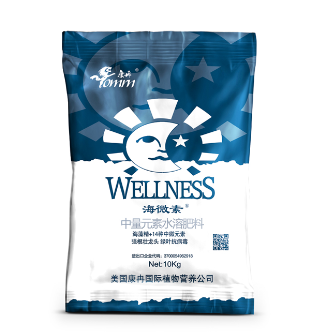Intelligent control of salt alkali and soil nutrition master - Haiwei Su
2024年05月20日 14:05:31Soil pH refers to the acidity and alkalinity of the soil. The range of acidity and alkalinity is from 0 to 14, and they are acidic, neutral, and alkaline according to the pH value from small to large. A pH value of 7 indicates that the soil is in a neutral reaction, less than 7 indicates acidity, and greater than 7 indicates alkalinity. Crops that are too acidic or too alkaline in the soil cannot grow healthily. So soil pH is quite important!
The hazards of soil acid-base imbalance:
1. Reduce the effectiveness of soil nutrients.
The availability of phosphorus in soil is significantly influenced by acidity and alkalinity. When the pH value exceeds 7.5 or is below 6, phosphate forms a delayed state with calcium or iron and aluminum, leading to a decrease in effectiveness.
Calcium, magnesium, and potassium are easily replaceable and leachable in acidic soils.
Calcium and magnesium have low solubility and reduced effectiveness in strongly alkaline soil.
The effectiveness of trace elements such as boron, manganese, and copper is greatly reduced in alkaline soil
The precipitation of molybdenum with free iron and aluminum in strongly acidic soil can reduce its effectiveness.
2. Not conducive to the healthy development of soil and damaging soil structure
Strong acidic and alkaline soils contain more H+and Na+, but lack Ca2+, making it difficult to form a good soil structure and hindering crop growth.

3. The activity of unfavorable soil microorganisms.
The most suitable pH value for soil microorganisms is generally in the neutral range of 6.5 to 7.5. Excessive acidity or alkalinity can severely inhibit the activity of soil microorganisms, thereby affecting the transformation and supply of nitrogen and other nutrients.
4. Not conducive to the growth and development of crops.
Generally, crops are most suitable for growth in neutral or near neutral soil.
To regulate the soil and change the imbalance between soil acidity and alkalinity, it is recommended to use Haiwei Su. Haiwei Su can intelligently regulate soil acidity and alkalinity, adjust acidity when encountering acid, adjust alkalinity when encountering alkali, improve soil, and restore soil aggregate structure. Let's take a look at the magical effect of Haiwei Su's intelligent control of acidity and alkalinity through a video.
Seaweed extract is a new type of nutrient fertilizer that chelates trace elements with seaweed extract. It not only intelligently regulates soil acidity and alkalinity, but also improves soil and restores soil particle structure. In addition, Seaweed extract is rich in 14 types of trace elements such as calcium, magnesium, sulfur, zinc, boron, copper, iron, manganese, silver, molybdenum, and titanium, which can effectively supplement seaweed extract and trace elements for crops, cultivate capillary roots, promote growth, adjust crown ratio, improve fruit commercialization, and increase single fruit weight.
The seaweed extract in this product can increase the chlorophyll content of plants, enhance photosynthesis, promote root development, and increase nutrient absorption by roots. Seaweed extract can also promote seed germination, increase seed germination rate, and promote seedling growth. In addition to the main functions mentioned above, it also has the ability to enhance crop resistance, cold resistance, and drought resistance.
This product can be mixed with other nitrogen, phosphorus, and potassium fertilizers for better results. It is recommended to supplement trace elements in advance before crop nutrient deficiency to avoid damage caused by nutrient deficiency and greatly reduce the probability of nutrient deficiency diseases such as yellow leaves, ulcers, cracked fruits, and navel rot.



